
Aretha Louise Franklin was an American singer, songwriter and pianist. Honored as the "Queen of Soul", she was twice named by Rolling Stone magazine as the greatest singer of all time.

Narada Michael Walden is an American musician, singer, songwriter and record producer. He acquired the nickname Narada from Sri Chinmoy.

"It Isn't, It Wasn't, It Ain't Never Gonna Be" is a duet recorded between Aretha Franklin and Whitney Houston, and appeared on Franklin's 1989 album Through the Storm. The song was released on June 10, 1989, as the second single from the album by Arista Records.

"I Knew You Were Waiting (For Me)" is a song released by American singer Aretha Franklin and English singer George Michael as a duet in 1987. The song was a number one hit in the United States and the United Kingdom. Billboard listed "I Knew You Were Waiting (For Me)" as Franklin's all-time biggest Hot 100 single. The song was Franklin's biggest hit on the Billboard Adult Contemporary chart, reaching number two. The song was written by Simon Climie and Dennis Morgan and produced by Narada Michael Walden. Franklin and Michael won a 1987 Grammy Award for Best R&B Performance by a Duo or Group with Vocal for "I Knew You Were Waiting (For Me)".
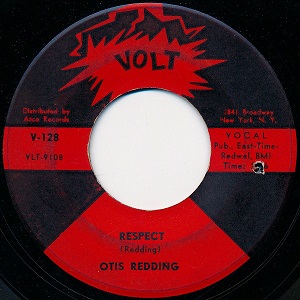
"Respect" is a song written and originally recorded by American soul singer Otis Redding. It was released in 1965 as a single from his third album Otis Blue/Otis Redding Sings Soul and became a crossover hit for Redding.
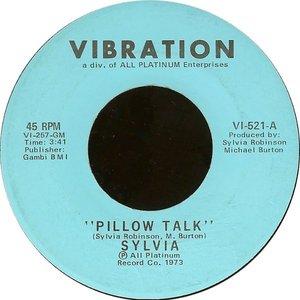
"Pillow Talk" is a 1973 song by American singer and songwriter Sylvia, written by Sylvia along with Michael Burton.

"Freeway of Love" is a song by American singer Aretha Franklin. It was written by Jeffrey Cohen and Narada Michael Walden and produced by the latter for Franklin's thirtieth studio album Who's Zoomin' Who? (1985). The song features a notable contribution from Clarence Clemons, the saxophonist from Bruce Springsteen’'s E Street Band. Sylvester, Martha Wash, and Jeanie Tracy provided backup vocals on "Freeway of Love".

"Sisters Are Doin' It for Themselves" is a song by British pop duo Eurythmics and American singer Aretha Franklin. A modern feminist anthem, it was written by Eurythmics members Annie Lennox and David A. Stewart and featured on both Eurythmics' Be Yourself Tonight (1985) and Franklin's Who's Zoomin' Who? (1985) albums. The duo originally intended to perform with Tina Turner, who was unavailable at the time and so they flew to Detroit and recorded with Franklin instead. The track also features three of Tom Petty's Heartbreakers: Stan Lynch on drums, Benmont Tench on organ, and Mike Campbell on lead guitar, plus session bassist Nathan East.

Who's Zoomin' Who? is the thirtieth studio album by American singer Aretha Franklin, released on July 9, 1985, by Arista Records. A departure from the Luther Vandross-produced adult contemporary sound of her previous albums Jump to It (1982) and Get It Right (1983), Franklin worked with producer Narada Michael Walden on the majority of the album, envisioning "a record with a younger sound to it". As a result, Who's Zoomin' Who? contains influences of several popular mid-1980s genres, including dance-pop, synth-pop, and contemporary R&B, as well as pop songs with crossover appeal.
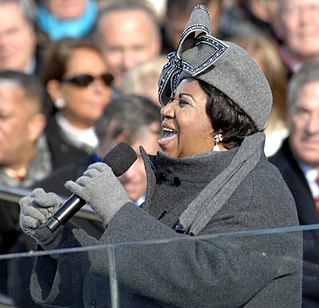
This discography documents the releases of albums and singles by Aretha Franklin. Widely regarded as the "Queen of Soul", she has sold more than 75 million records worldwide, making her one of the best-selling R&B female artists of all time. Billboard ranks her as the 34th Greatest Artist of all time. Franklin has scored 73 entries on the Billboard Hot 100, the most among women for nearly 50 years until Nicki Minaj passed her in 2017. Billboard listed her as the 41st Top Gospel Artist of the 2010s. She has accumulated 20 No. 1 hits on Billboard's Hot R&B/Hip-Hop Songs.

"Until You Come Back to Me (That's What I'm Gonna Do)" is a song written by Morris Broadnax, Clarence Paul, and Stevie Wonder. The song was originally recorded by Stevie Wonder in 1967, but his version was not released as a single and did not appear on an album until 1977's anthology Looking Back. The best-known version of this song is the 1973 release by Aretha Franklin, who had a million-selling top 10 hit on Billboard charts. The song reached No. 1 on the R&B chart and No. 3 on the Hot 100 chart in 1974. It became an RIAA Gold record.
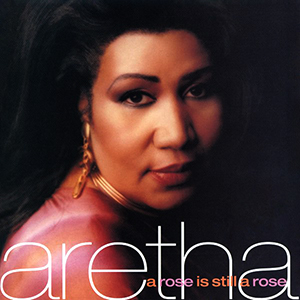
A Rose Is Still a Rose is the thirty-fourth studio album by American recording artist Aretha Franklin. It was released on March 24, 1998, by Arista Records. Conceived after a longer hiatus and a complete departure from her previous studio album What You See Is What You Sweat (1991), the album includes influences of 1990s hip hop as well as modern-day contemporary R&B and soul music. Throughout the project, Franklin worked with many famed hip hop producers and rappers, such as Lauryn Hill, Sean "Puffy" Combs, Jermaine Dupri, and Daryl Simmons. With the latter acts producing most of the album, A Rose Is Still a Rose deviated from the adult contemporary sound of Franklin's older work.
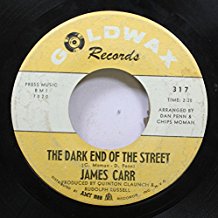
"The Dark End of the Street" is a 1967 soul song, written by songwriters Dan Penn and Chips Moman and first recorded by James Carr. It became his trademark song, reaching number 10 on Billboard Magazine's R&B Chart, and crossing over to number 77 on the Billboard Hot 100.

Aretha is the thirty-first studio album by American singer Aretha Franklin, originally released on October 27, 1986, by Arista Records. It is the third album with the Aretha title to be released by Franklin, following her 1961 album and 1980 album.

Through the Storm is the thirty-second studio album by American singer Aretha Franklin. It was released on April 01, 1989, by Arista Records.
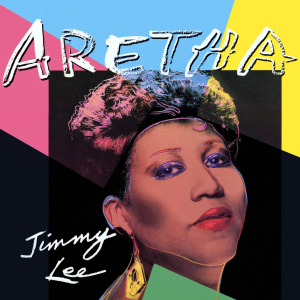
"Jimmy Lee" is a song written by Narada Michael Walden, Lisa Walden, Preston Glass, and Jeffrey Cohen for American singer Aretha Franklin, who recorded it for her 1986 album Aretha. Produced by Narada Michael Walden, the track was released as the lead single from the album in late 1986.
"Divine Emotions" is a 1988 single by Narada Michael Walden, from the album Divine Emotion. A successful producer, Walden billed himself as Narada for his later music releases. After producing acts like Aretha Franklin and Whitney Houston in the mid-1980s, Walden released "Divine Emotions," in 1988. The single went to number one on the Billboard dance club play chart for one week. Although the single did not chart on the Hot 100, it peaked at number twenty-one on the soul singles chart. Overseas, "Divine Emotions", was a Top Ten hit in the UK, peaking at #8, and in the Netherlands, peaking at #4 in the Dutch Top40.

Whisper a Prayer is the third studio album by British singer-songwriter Mica Paris. It was released on 8 June 1993 by 4th & B'way Records, her last for the label. Recording sessions for the album commenced in the spring of 1992 and concluded the following spring with Paris co-writing four of the twelve songs and producing one. Whisper a Prayer features writing and production from Narada Michael Walden, Rod Temperton and Terry Britten all of whom were top record producers at the time.
"Gimme Your Love" is a song recorded as duet between American singers Aretha Franklin and James Brown in 1989. The two singers' only collaboration, it is the lead track on Franklin's album Through the Storm and also appeared on Brown's Soul Session Live. It was written by Narada Michael Walden and Jeffrey Cohen, and produced by the former. It was released as the album's third and final single on September 18, 1989, by Arista Records and peaked at No. 48 on the Billboard R&B singles chart. The song was poorly received by critics, with Rolling Stone describing it as "a series of whoops and grunts as challenging to [the singers] as yawning". Nevertheless, it was nominated for the 1990 Grammy Award for Best R&B Performance by a Duo or Group with Vocal.
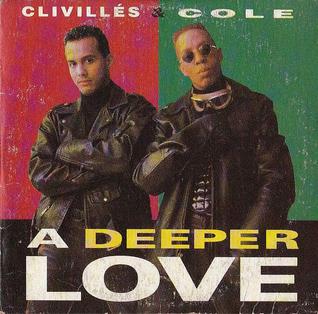
"A Deeper Love" is a song written by American producers Robert Clivillés and David Cole, and performed by them as Clivillés & Cole featuring vocals by Deborah Cooper. Released by Columbia in 1991, the song was the duo's fifth number-one on the US Billboard Hot Dance Club Play chart. On other US charts, "A Deeper Love" peaked at number 83 on the soul singles chart and number 44 on the pop chart. Overseas, especially in Europe the single charted higher, going to number 15 in the UK and number eight on the Dutch Top 40.


















